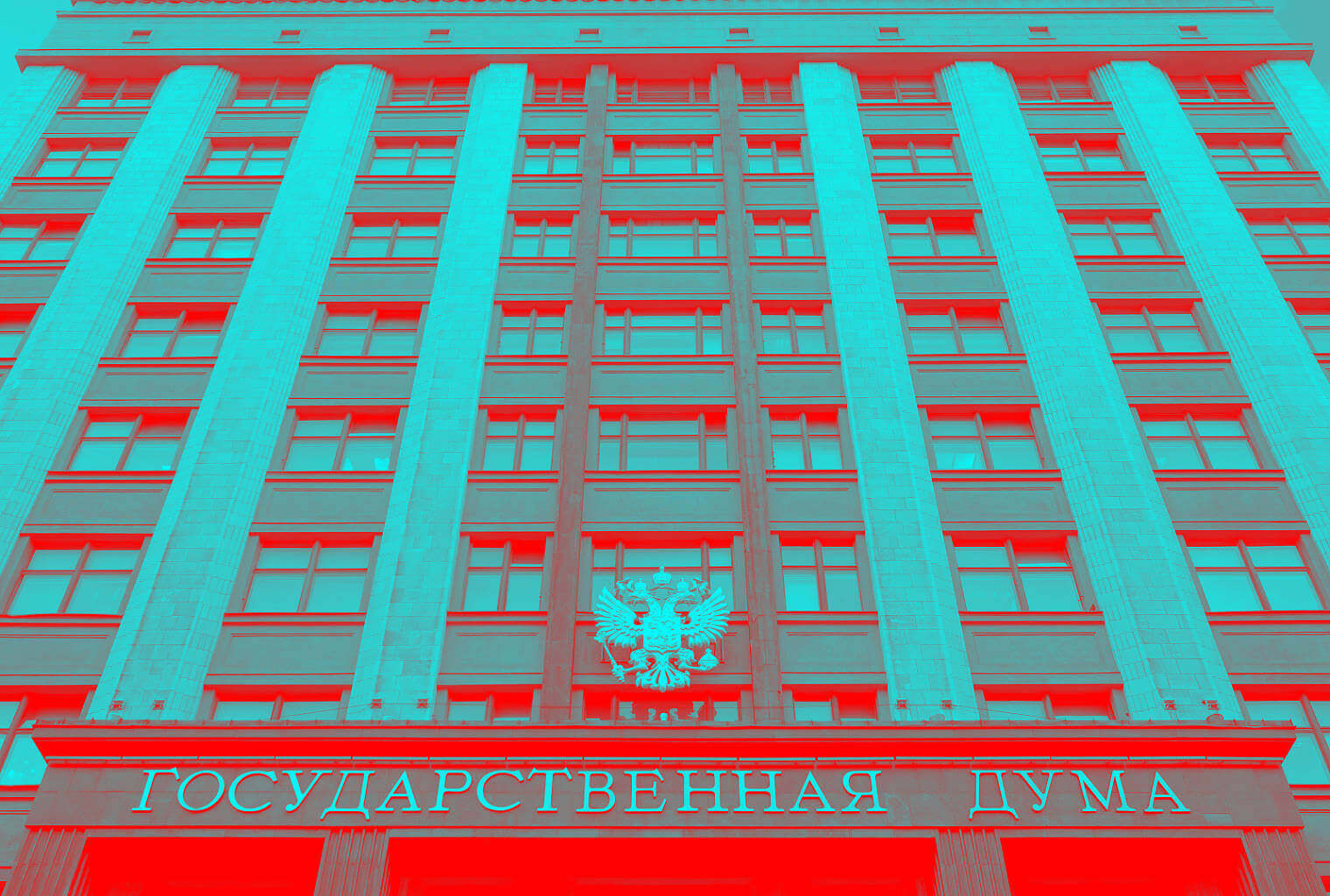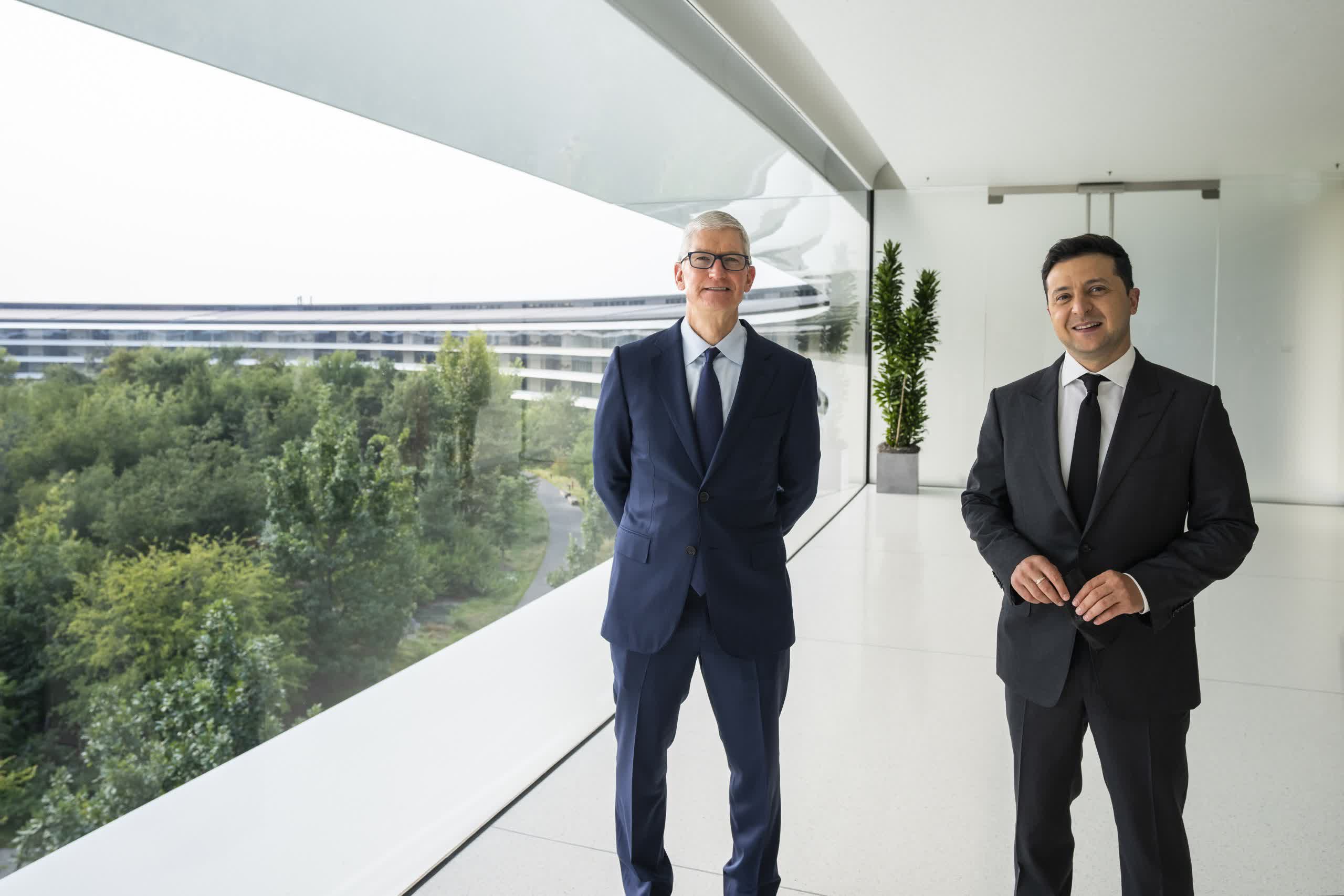Why it matters: In response to Russia's full-scale invasion earlier this week, Ukraine's Vice Prime Minister has asked Apple CEO Tim Cook to halt device sales and block the App Store in Russia. Although Apple has not publicly commented on the request, there are increasing calls for tech companies to restrict Russian access to their products and services.
Following a barrage of economic and financial sanctions from several countries, Ukraine has now called on the private sector to do its part --- starting with tech giant Apple.
On Friday, Mykhailo Fedorov, the Ukrainian minister of digital transformation, tweeted, "I've contacted Tim Cook, Apple's CEO, to block the Apple Store for citizens of the Russian Federation, and to support the package of US government sanctions!"
The tweet included a letter addressed directly to Tim Cook from the Ukrainian government. It reads, "We need your support - in 2022, modern technology is perhaps the best answer to the tanks, multiple rocket launchers (hrad) and missiles." He further emphasizes that "such actions will motivate youth and active population of Russia to proactively stop the disgraceful military aggression."
This request highlights the prominent role that technology and the internet play in the Ukrainian conflict. Along with the military battles being fought on the ground, the two nations are exchanging blows in cyberspace. Ukrainian companies and networks were barraged with cyberattacks in the weeks leading up to the invasion. Earlier this week, hacking collective Anonymous purportedly caused outages to major Russian government websites, including the official page of the Kremlin.
Most of the economic sanctions were focused on Russia's finance, energy, and enterprise technology sectors, limiting their ability to trade internationally. However, there's increasing pressure for US tech companies to tighten Russian consumer access to their services. At the start of the crisis, the official Ukraine Twitter account called for Russia's account to be banned from the platform, posting, "Hey people, let's demand Twitter to remove Russia from here."

Apple is a major player in the smartphone space in Russia.
In Q3 2021, IDC reported that iPhones were the third most popular phone brand among Russians with 15% of the market, trailing behind Samsung with 34% and Xiaomi with 26%. While most Apple services, including the App Store, remain active for Russian consumers, the global economic sanctions have affected Apple Pay. Russian banks affected by the sanctions are now unable to use Apple's wireless payments solution.
Apple's relationship with the Russian government has been rocky in recent years. In November 2019, Russia passed a law prohibiting the sale of electronic devices without pre-configured Russian software. Apple was later forced to offer local apps, including Yandex Browser, streaming service OK Live, and social network VK, during the initial iPhone setup. The company also preemptively removed Russian access to iCloud Private Relay, a network privacy feature first implemented in iOS 15.
While Apple has not responded directly to the letter, Tim Cook tweeted on Thursday that he was "deeply concerned with the situation Ukraine," adding that Apple planned to support local humanitarian efforts.
Image credit: Brooks Kraft
